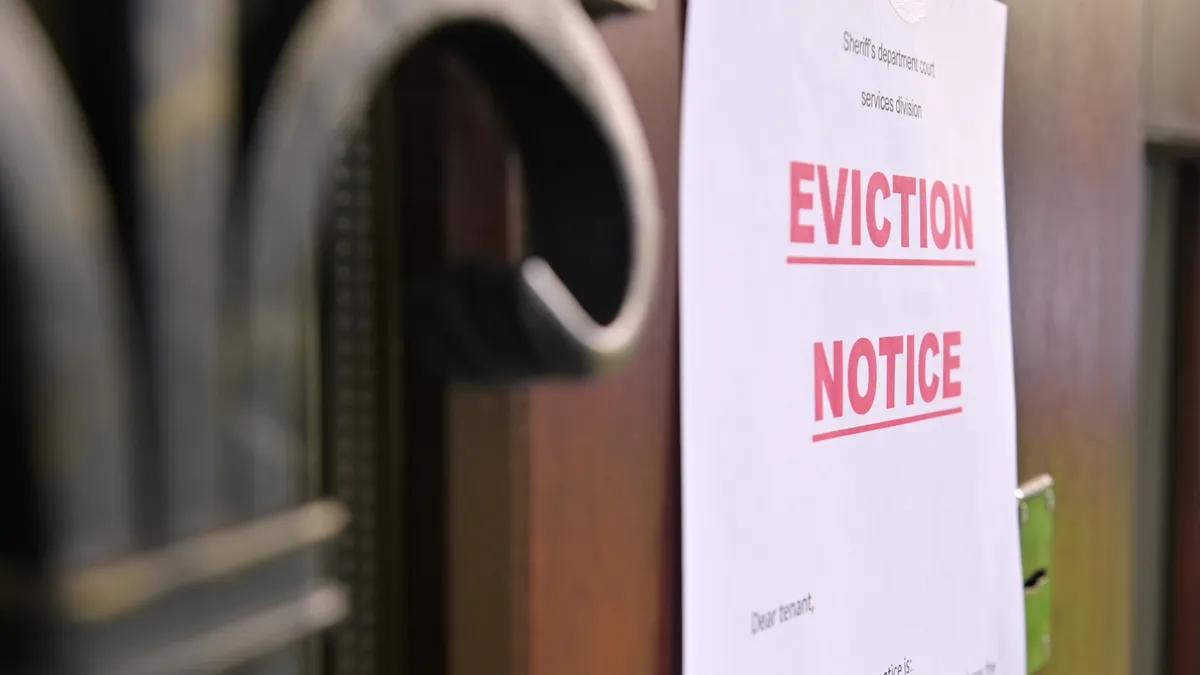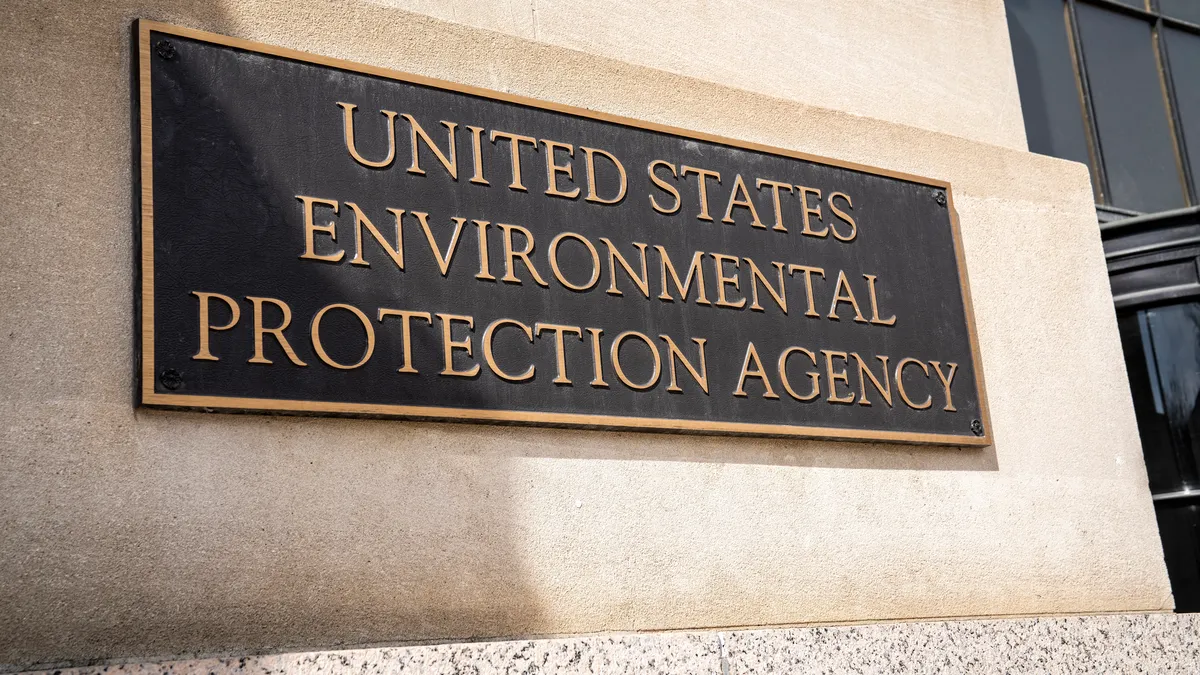When more than 530 National Apartment Association (NAA) members converged on Capitol Hill for an advocacy conference in March, one of their top three priorities was passing legislation that would clarify ambiguities in the Coronavirus Aid, Relief & Economic Security (CARES) Act that have made a 30-day federal notice requirement for evictions the law of the land.
NAA worked with industry experts to develop legislation that provides a clear sunset date for the mandate and clarifies that the provision applied only to cases of nonpayment of rent and outstanding balances that accrued during the moratorium’s covered period.
But after nearly two years, NAA lobbyists have yet to find congressional representatives who will sponsor and shepherd the legislation.
NAA says the notice-to-vacate mandate, which requires landlords of federally funded and federally assisted buildings to notify tenants 30 days before they file complaints with eviction courts, has remained in place after the emergency legislation’s temporary eviction moratorium expired on July 24, 2020, because of a drafting error in section 4024 (c)(1) of the CARES Act.
Nicole Upano, NAA assistant vice president of housing policy and regulatory affairs, said Congress intended the 30-day notice, which was written into a section connected to the eviction moratorium, to expire along with it.
That was never implicitly stated, however, causing confusion in eviction courts and exacerbating post-pandemic delays for eviction hearings, according to an NAA brief released earlier this month.
“In the height of pandemic uncertainty, there was an argument to be made that it made sense to give residents a 30-day notice to vacate,” Upano says. “Now, 21 months later, this is a really serious problem.”
Finding a sponsor for its legislation to eliminate the notice is “a little more complicated now that it’s been in effect for so long,” Upano says.
“Two years later, the pandemic uncertainty that precipitated this emergency extension of notice no longer exists,” Upano says. “Yet it remains a controversial topic for some folks on the Hill because, on its face, the solution appears to remove tenant protections.”
What owners can do
NAA continues to educate Congress that its legislative fix does not change long-existing state tenant protections but “returns authority back to the states to decide the notice requirement that aligns best with their unique eviction procedure,” she adds.
In the meantime, NAA recommends that members work with local counsel to ensure compliance with all federal, state and local eviction laws and regulations.
The CARES Act 30-day notification is longer than any existing notice procedures for evictions due to nonpayment of rent set by individual states.
“While required notice periods vary widely according to state and sometimes local law, the average notice is eight days,” NAA states. “The CARES Act requirement more than quadruples the notice procedure in some jurisdictions, which translates into more lost rent while housing providers wait for their day in eviction court.”
Upano said this level of federal interference in regulations once left up to cities and states is unprecedented.
“States have long-established eviction laws, procedures and court processes that govern this area of the law,” she said. “This is the only area of federal law that now governs, and essentially replaces, state eviction laws, and it was not intended to.”
Eviction questions
Claiming these laws are often antiquated and weighted toward landlords, the National Housing Law Project is advocating for the 30-day notice to remain. In many states, said NHLP Executive Director Shamus Roller, “courts function as conveyor belts, moving tenants toward eviction.”
In 2021, NHLP surveyed legal aid and civil rights attorneys in 41 states as well as Washington, D.C., and Puerto Rico and found that eviction cases and lockouts have been rising since the CARES Act eviction moratorium ended. NHLP’s surveys found that 86% of respondents had seen landlords proceed with evictions after collecting federal emergency rental-assistance funds or refusing to accept the funds altogether.
“As demonstrated by our two surveys, landlords continue to evict families in spite of legal protections and billions of dollars in aid to landlords,” said Marie Claire Tran-Leung, NHLP’s evictions initiative program director. “There continue to be illegal evictions, lockouts and other harassment by landlords. Some landlords even [illegally] collect rental assistance funds and then evict tenants.”
The 30-day notice provision in the CARES Act allows families time to figure out next steps, she said, without hurting landlords.
NAA sees it differently. “The rental housing industry cannot continue to successfully manage their communities with sustained losses of rental income that result from continued delays of legitimate evictions,” the association’s brief states. “This is particularly challenging for operators of subsidized housing and mom-and-pop owners, ultimately hurting the tens of millions of Americans who work in the industry and the nation’s renters.”
Over-regulation not only makes housing more expensive over the long term, it’s one of the biggest reasons developers, operators and workers leave the multifamily industry, Upano says.
The 30-day notice, she adds “is part of a broader over-regulation problem that’s affecting housing affordability.


















